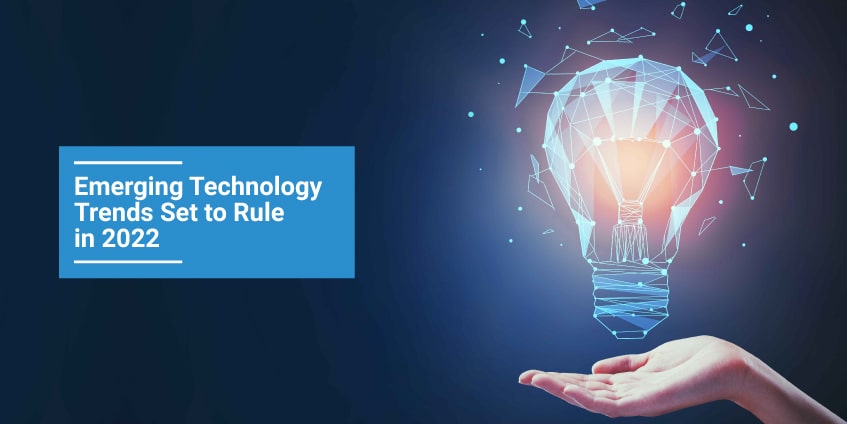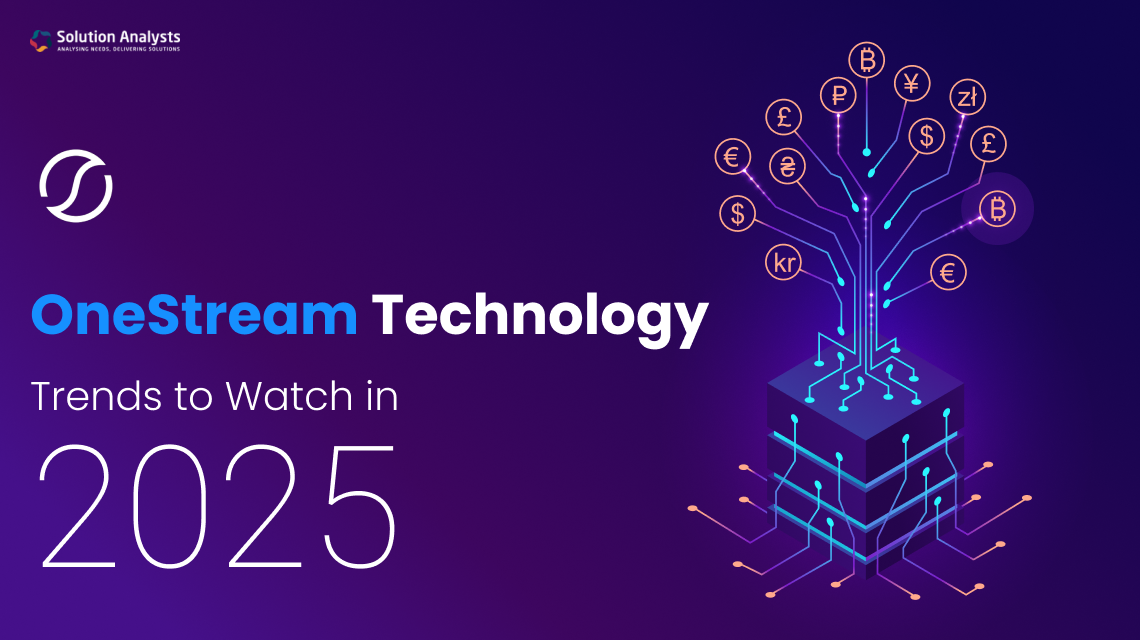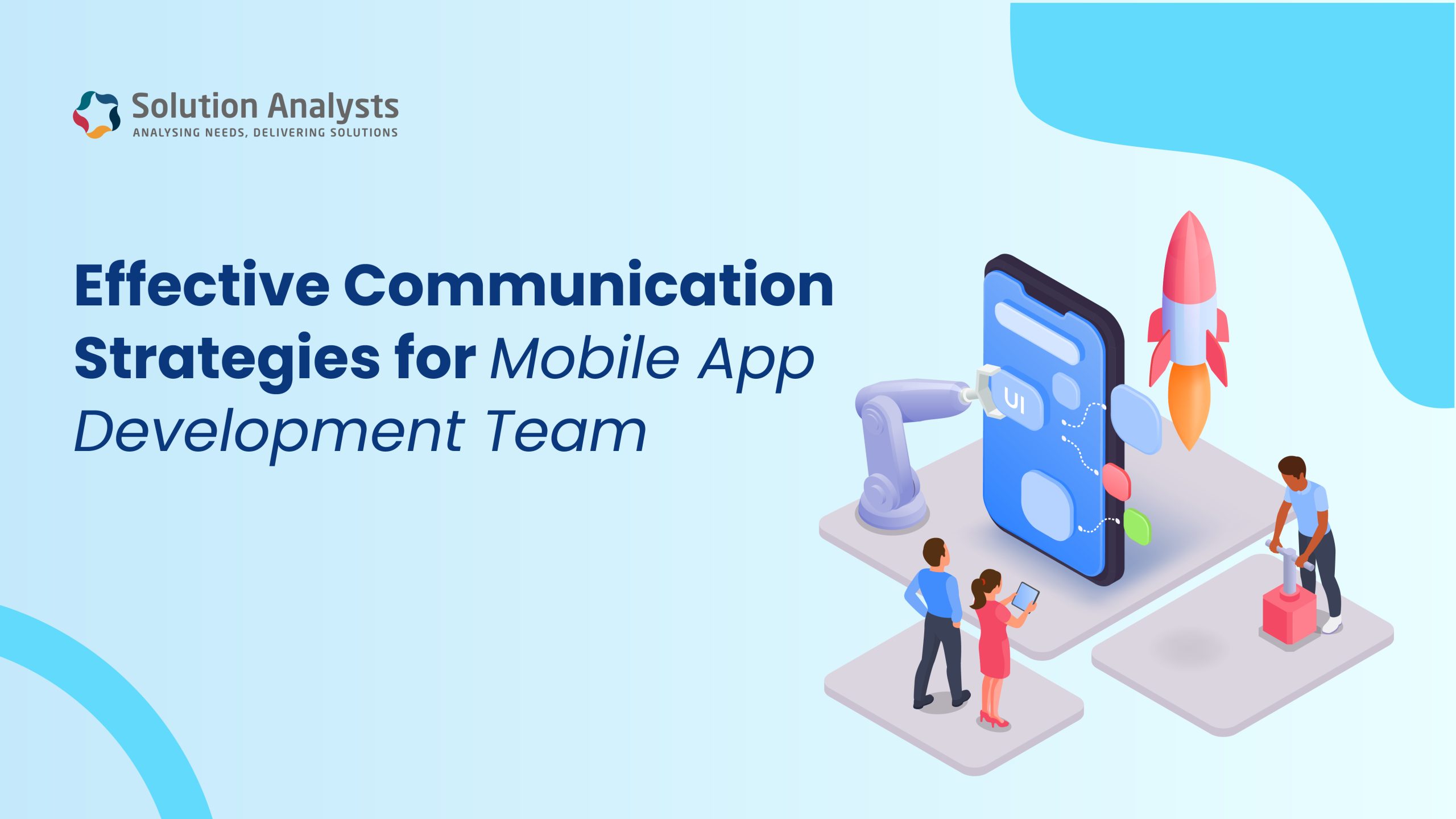
Table of Contents
The corporate world has not yet fully recovered from the blow of COVID-19. We still feel the impact of the pandemic, and this situation will last for some time. But, the good news is several technologies are all set to pick up steam in the year 2022 and beyond.
These advancing technologies will not only assist companies to survive this troubled time but also give them the necessary strength to thrive amid challenges and intense competition.
The COVID-19 pandemic has changed customer requirements while bringing drastic changes in the way we work and live.
This situation will remain to continue in 2022 and beyond. Here, technology and business trends can make a difference.
In this article, we are going to discuss the top ten trends that we expect to encounter in the coming years. These trends will certainly bring disruptive changes in modern enterprises over the period.
Top Technology Trends to Influence Global Enterprises in 2022
Remote working, real-time collaboration, and secure data sharing will remain on the center stage in years to come. With these themes kept in mind, we can jot down the following technology trends for global businesses and enterprises.
AI Engineering
Though an emergent discipline, AI Engineering gains ground rapidly in the corporate sector worldwide. It focuses on developing tools, processes, and systems to enable AI technology in the real world.
It automates all updates to data, applications, and models to streamline AI delivery. It will initiate the delivery of AI for ensuring business value by combining with strong AI governance.
As a robust field of research and practice, it can combine the principles related to systems engineering, software engineering, and human-centered design.
Cloud Migration and DevOps
Amid the rapidly growing trend of digital transformation, DevOps and cloud computing will remain in the center stage. On one hand, DevOps will streamline the software development, deployment, and related processes, and on the other hand, cloud computing offers IaaS (Infrastructure As A Service).
We will witness an upsurge in cloud migration over the period and DevOps will make the difference.
All data-driven sectors can leverage the benefits of the cloud irrespective of their size and scale. Earlier, industries had to make a huge capital investment for running a dedicated application.
Thanks to the cloud technology, enterprises can get scalable and flexible services for running software and data storage in a cost-effective way. Entrepreneurs need to pay as per Even startups can get the cloud advantage in a cost-effective way using hybrid cloud and public cloud services.
Cloud migration and DevOps are expected to converge to appear as a single trend in the coming years as more entrepreneurs will jump on the cloud bandwagon.
Security & Privacy Protection
In this digitization age, an increasing number of personal and enterprise-level cyberattacks has become a big cause of concern for entrepreneurs.
What’s more, businesses of all types and scales remain vulnerable to such destructive attacks, and therefore, it is necessary for enterprises to give priority to Internet security and privacy protection.
One of the powerful ways to ensure security is to educate professionals and individuals so that they can identify any such attempts in advance and try to avoid them to protect the company’s image.
Another rising trend is DevSecOps that focuses mainly on implementing security in all phases of SDLC (Software Development Life Cycle). It involves people and processes to implement security check-ins in application security.
It also automates the app security process. In the year 2022 and beyond, we will witness the rise of this trend.
AI is included in both security and privacy protection. This technology takes care of robust cybersecurity protocols and makes them easier. What’s more, it enables the cybersecurity system to spot risks and learn from the behavior of hackers.
Blockchain
Blockchain, as an innovative technology consisting of distributed ledger, enables companies to track online transactions and keep them secure. It is also useful for enhancing transparency, immutability, decentralization, and security.
To date, Blockchain technology is useful in providing smart contracts and enhanced security in online transactions.
NFTs (Non-Fungible Tokens) and supply chain management are promising domains for blockchains.
If we talk about the sectors, this technology will come out from the BFSI sector and some of the core sectors including manufacturing, healthcare, and retail will emerge as big beneficiaries of the blockchain technology.
Metaverse
These days, many global enterprises across different industry verticals are dipping their toes into this next-gen concept. We expect that gradually, it will become a necessity for global brands to enter the universe of Metaverse.
This trend will bring ubiquitous networking, XR (Extended Reality) with VR and AR, and blockchain with NFTs (Non-Fungible Tokens).
It is interesting to see how the Metaverse will transform into an omniverse by offering multiple cross-chain possibilities. Currently, gaming, crypto, entertainment, and fashion sectors are leveraging metaverse, but over the period, we will see other domains follow suit. Brands that focus on the digital-first approach can leverage the benefits of Metaverse.
Decision Intelligence
Though a relatively new concept, Decision Intelligence has started gaining traction rapidly among entrepreneurs. Specifically, the COVID-19 pandemic has contributed to increasing its popularity in the corporate world amid the urgency of digitization.
Decision intelligence emerges as a robust solution that can connect decision management, decision support, and complex system applications with the help of AI and ML technologies.
Customer-focused companies opt for decision intelligence to meet the ever-changing demands of customers, get success amid digital competitors and remain resilient to disruptions in the pandemic age.
Simply put, decision intelligence is necessary to accomplish more with less in a competitive business scenario. More organizations will opt for decision intelligence to make meaningful decisions based on actionable insights and recommendations.
Industrial IoT
Globally, the Industrial IoT (IIoT) market size is expected to reach $772.08 billion by 2026 as predicted by ResearchAndMarkets. IIoT equipment manufacturers will keep on finding more affordable ways to develop sensors and processors as the technology will be mainstreamed for automation.
But, as IIoT gains ground, it will be necessary to consider the aspects including security, connectivity, usability, and platform management to make the most of this revolutionary trend in the year 2022 and beyond.
Talking about the key benefits of IIoT, automated manufacturing, real-time efficiencies, and workforce-equipment connectivity can be mentioned.
IIoT is also useful for ensuring the maintenance and safety of remote equipment. In the year 2022, IIoT will play a big role in sustainable manufacturing and bringing smart solutions.
DataOps and Data Engineering
DataOps is the combination of technology, architectural patterns, people, processes, and workflows to deliver new insights to customers rapidly. It enables data fabric and we expect the rise of these two concepts over the period.
Another related and rising topic is the Data Mesh that is capable of breaking giant, monolithic enterprise data architectures into domains or subsystems, and this design pattern is managed by a dedicated team of professionals.
The rapidly changing landscape of data engineering and operations poses many challenges while bringing opportunities. As a dynamic technology, modern data engineering is driven by the tectonic shift from on-premise databases and BI tools to modern, cloud-based platforms.
What’s more, most organizations tend to adopt multiple technologies to keep pace with ever-changing requirements. DataOps and data engineering will enable these organizations to get continuous and automated delivery of data to power analytics, data science, BI, and data-powered products.
AIOps
AIOps (Artificial Intelligence for IT Operations) is useful for automating and enhancing IT operations. As a platform, it uses machine learning and analytics for monitoring and service desk functions. It can offer insights from multiple data sources and various analytic technologies.
AIOps can be easily integrated with trends like cybersecurity, DevOps, and hyper-automation. Remote working and observability can boost AIOps and we will see all these trends together in the year 2022 and beyond. It is necessary to identify how your IT team will use the AIOps platform to meet operational demands.
Cyber AI
Integration of AI in cybersecurity or Cyber AI is an emerging trend that gains ground quickly in the corporate sector. As per Technavio research firm, the AI-based cybersecurity market is expected to grow by $19 billion between the five years ranging from 2021 to 2025.
The adoption of AI in cybersecurity can contribute to streamlining workflows and reducing human errors through automation.
The top trends of Cyber AI include automation of identity and access management (IAM) security measures, reduced burden of worker shortage in the cybersecurity domain, and enhanced efforts for regulatory compliance.
We can also consider improvements in cloud network security and Blockchain improvements in Cyber Ai.
Wrapping Up
As the world slowly but steadily comes out from a firm grip of the pandemic, we can certainly expect that 2022 will see rapid progress in these technologies.
Smart startups, corporations, and conglomerates will grab the opportunities to capitalize on these emerging trends. Let’s hope that these trends will drive the corporate world toward innovation and success in the near future.
Solution Analysts is ready to act as a catalyst in your company’s growth. Our in-house teams of experienced professionals can assist your enterprise to make the most of automation and digital transformation with advanced enterprise mobility solutions.












 sales@solutionanalysts.com
sales@solutionanalysts.com biz.solutionanalysts
biz.solutionanalysts






